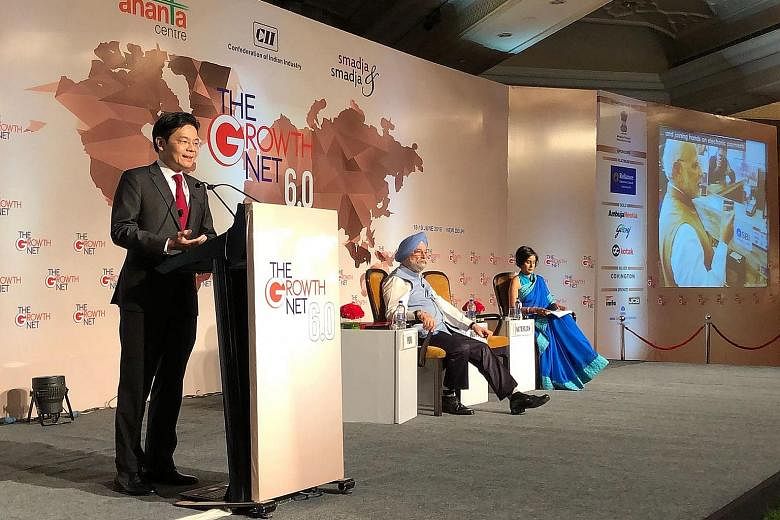National Development Minister Lawrence Wong said yesterday the United States-North Korea summit, held in Singapore last week, showed the country can organise a "complex operation at short notice".
Singapore not only showed the world it is a credible and trusted partner, but "that even as a small island state we can do our part (and contribute to) the process for peace and stability in the Korean peninsula", he said at a convention in New Delhi on smart cities.
Mr Wong, who is also the Second Minister for Finance, was referring to the June 12 summit between US President Donald Trump and North Korean leader Kim Jong Un that Singapore hosted.
Despite its achievements, Singapore also recognises that much more still needs to be done, he said as he set out Singapore's experiences in building a smart city.
Mr Wong was speaking at the annual meeting of The Growth Net, a a business summit that looks at challenges facing emerging economies. It was organised by Smadja and Smadja Strategic Advisory, the independent non-profit Ananta Centre and the Confederation of Indian Industry.
In his speech, he highlighted three lessons Singapore learnt in building a smart city.
These include close collaboration with the private sector in the design, financing or implementation of projects; coordination among different government bodies and translating the masterplan to make it relevant to residents.
"Smartness is just a means to an end," he stressed. "After all, cities are about the people. Whatever we do has to be centred on making lives better for everyone."
Singapore has been collaborating with India, which is trying to upgrade basic infrastructure, and using information and digital technology to improve the quality of public services in 100 cities.
Already it is helping the state of Andhra Pradesh build its capital city of Amaravati from scratch.
Singapore's Surbana Jurong is helping to create the masterplan while a consortium made up of Ascendas-Singbridge and Sembcorp Development is in the process of developing a 6.84 sq km stretch, which will be the capital's commercial core.
In another collaboration, Surbana Jurong was appointed master planner last month for the Pune Metropolitan Region that spreads across almost 7,255 sq km, and this includes the city's surrounding areas.

